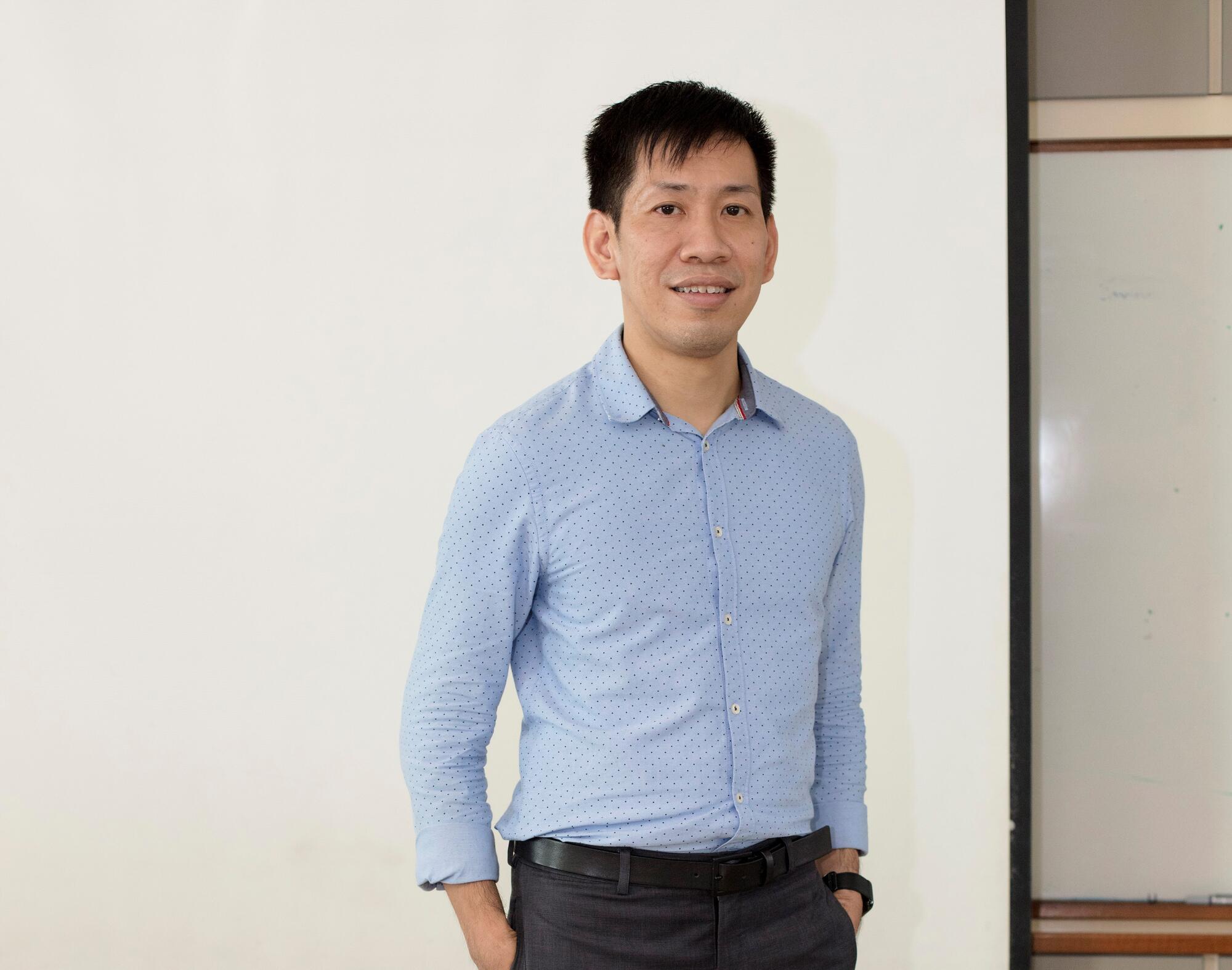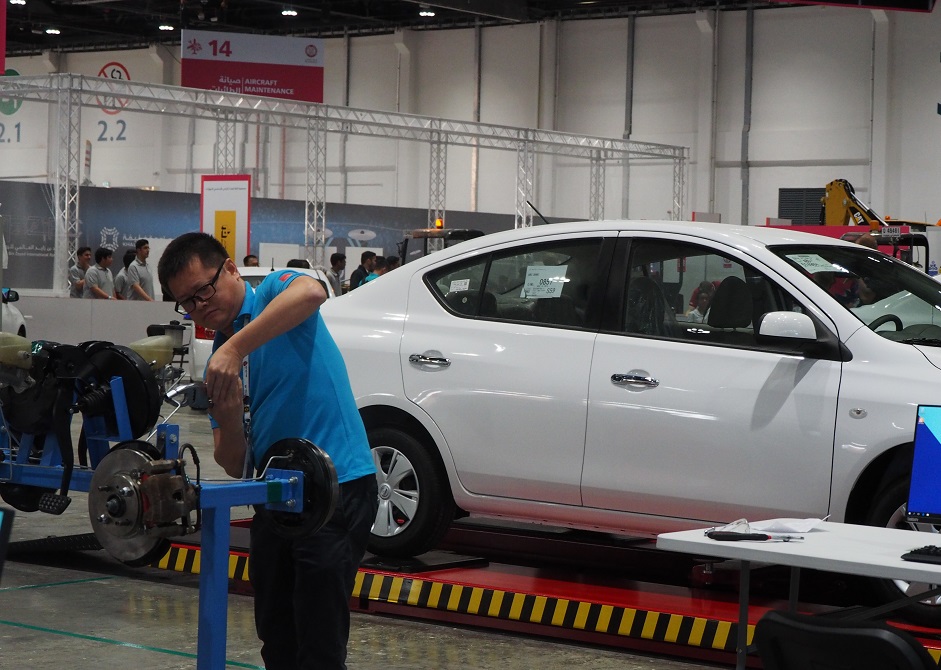When you put students from Express, Normal (Academic) and Normal (Technical) courses in the same classroom, who would be the first to speak up?
This is a real question that teachers piloting Full Subject-Based Banding (FSBB) in their schools contended with as they prepared for changes to cater to classes of mixed-ability students.
Piloted in 28 schools this year, FSBB sees Secondary 1 students from different courses placed in the same form classes and take hands-on subjects such as Art, Music, PE, Design & Technology (D&T), Food and Consumer Education and Character and Citizenship Education (CCE) together. Students still go to different teaching groups according to their subject levels for the other subjects. Under this system, students from the Normal courses join their classmates from the Express course for certain subjects if they meet the requirements to do so. This ensures that students get to learn at a pace suitable for them.
So can these students learn well together?
The teachers in the pilot schools say a resounding yes. But it does not come about by chance. Three of the pilot schools share the structures they put in place and how they’ve prepared their teachers for FSBB.
Tapping on networks
In Deyi Secondary School, the teachers focused on building a positive classroom culture with the first batch of mixed-stream classes.
Back in 2019, teachers had raised questions at a staff engagement session about how students will get along, and whether students from the Normal courses might feel inferior or left out. Some also worried about how to engage students with different levels of academic readiness in the same classroom.
School Staff Developer Mrs Patty Gan shared, “In preparing for FSBB, we wanted to equip teachers with a positive mindset and the skills to make every student feel welcome and supported, regardless of their course. Fortunately, we had help!”
The school partnered with a master teacher from the Academy of Singapore Teachers to conduct training in facilitation skills and strategies to foster a positive class culture. For example, to encourage students to take ownership of their learning, the form teachers allowed each class to write their own class rules and routines. This resulted in some unexpected gems – one class came up with a chant that they performed every morning to remind each other of their class rules!
The Sec 1 form teachers started the year with rapport building through a level camp. They also intentionally appointed students from all three courses to their class committee, so that they could help manage conflicts in the class, and reinforce the belief that everyone can lead.
To address the different learning needs in a diverse classroom, teachers formed Professional Learning Communities (PLCs) and discussed ways to include Differentiated Instruction in their lessons. For example, students who finished their work faster were tasked to help check their classmates’ work. This not only allowed students to practise what they learnt in a different way, but also contributed to a culture of positive interdependence.
These deliberate actions were meant to help forge tighter bonds between the students.
The teachers also made an effort to identify students who have fewer friends, and try to help them when it comes to group and social activities. Conversely, students who connect well with others are trained as Peer Support Leaders, to provide a listening ear to those who are feeling down.
“We can see that students have friends from different courses – that was a relief!” shared Mrs Gan.
She also observed that overall, students are less conscious of their course of study than expected.
“Instead of the ‘Express Science class’, I hear the students referring to themselves as being in ‘Mr Tan’s Science class’,” she shares. “I’m happy that they identify themselves that way!”
Hearing a different perspective
The teachers at Gan Eng Seng School were similarly concerned with students’ social-emotional well-being. However, they took a different approach to the “experts” they invited for their staff training.
The school invited two alumni, who had graduated from the Normal (A) and Normal (Technical) courses to narrate their experiences to the teachers. While the two had graduated a while back and are doing well in the workforce, they were able to describe some of the struggles they had faced – how they felt excluded in their Co-Curricular Activities (CCAs), or how some of the language used by their teachers had, unintentionally, lowered their self-esteem.
.jpg) “It was an eye-opener for some of the teachers, especially those who had not taught N(T) classes before,” Mdm Sarawathy Varadaraju, Vice-Principal of Gan Eng Seng School shared.
“It was an eye-opener for some of the teachers, especially those who had not taught N(T) classes before,” Mdm Sarawathy Varadaraju, Vice-Principal of Gan Eng Seng School shared.
After the sharing, the teachers discussed ways they could be more sensitive to their students’ needs and emotions. They became more mindful of the words they use in class, especially when they are addressing behavioural issues of students from the Normal courses. One simple change they made was to avoid addressing the students as ‘N(T) students’. Instead, they said ‘students studying in the N(T) course’ when required.
“As the students still need to know their course of study, we can’t avoid the term ‘Normal (Tech)’ entirely,” Head of Character and Citizenship Education (CCE), Mr Paul Lee explained. “However, the change signals that they are people with their own strengths and interests. Their course of study is just one aspect of their identity, and does not define them.”
The school also acted on what the alumni shared, for example, by ensuring a more equal distribution of students in each CCA to discourage segregation. To recognise non-academic achievements, class-based awards were also given out every semester for qualities such as resilience, respect and integrity.
“We want all students to know that they can all pursue success in their own domains,” Mdm Sara added. “The teachers will help everyone fulfil their potential, and not limit them because of how they did in the PSLE.”
‘You won’t know till you try’
In preparing for FSBB, Bowen Secondary School had a decidedly hands-on approach – test it out to see what works, and what needs to be improved!
To allow teachers to experience what it is like to teach an FSBB class, the school organised a series of trial sessions for Secondary 2 CCE lessons last year. Students were re-grouped by their CCAs, so every class had a mix of students from the three courses.
The teachers, who conducted the trial sessions, found valuable insights to share with the others. For example, they recommended strategies to get quieter students to participate in class, and to have more visual aids and hands-on activities to cater to all kind of learning styles.
Their sharing got the teachers of common curriculum subjects like Art, Design & Technology (D&T) and Food and Consumer Education to plan trigger activities for every lesson unit. For example, in D&T, students had fun finding patterns in a “random lines” activity to start the creative process. This was also a way to form mixed groups. Students were asked to choose their favourite cartoon, and joined others with the same interest. Those in the same group naturally had a lot to share with each other!
The trial also surfaced another important consideration – students with special needs. FSBB required students to move to different classrooms according to their teaching groups, but the change in environment and routines can be a disorientating process for those with special conditions.
“The trial sessions helped us identify areas that we might have otherwise overlooked,” Ms Karen Chia, Head of Humanities of Bowen Secondary shared. “Following the trial, we enlisted the help of the Allied Educators to brief the students with special needs, and mentally prepare them for the new routines. They also supported the students by joining us for the next CCE lesson, and that helped!”
In the same spirit of experimentation, the school also got the student leaders to role-play as Secondary 1s and simulated the movement between classes using an FSBB timetable. Based on the students’ feedback, they made some tweaks to the allocation of classrooms to make it more efficient and installed benches along the corridors so that those returning from another venue have a place to wait and put their belongings if a lesson is still going on in their classroom.
A team of teachers looked into socialisation and researched strategies to get the students to mingle and get along with those from different streams. One direct outcome was that one period was set aside for class bonding and games every Friday morning. These efforts ensured that the students form strong friendships with their classmates even though they do not see each other for all lessons.
“In a way, FSBB is uncharted waters for many of us,” Ms Chia reflected. “But seeing the positive interactions between the students has assured us that this is the right way to go.”
One Secondary Education
By 2024, FSBB will be fully implemented in all secondary schools and terms like “Express course” and “Normal course” will be phased out. This is a significant change to how schools are run, and teachers will have to rethink their approach to teach in a more diverse classroom.
This may seem daunting, but the experiences of the FSBB pilot schools show us that our teachers are committed to ensuring that students’ needs – whether academic or emotional – are taken care of. They will continue to experiment in different ways to come up with ways to engage students in a diverse classroom, and help everyone reach their potential.
As for the question, which student – Express, N(A) or N(T) – would speak first in a class, the answer is simply that it doesn’t matter who speaks first, so long as all the students get a chance to express themselves in their own way, and FSBB is one more step in our education system towards making this possible.



.jpg)


